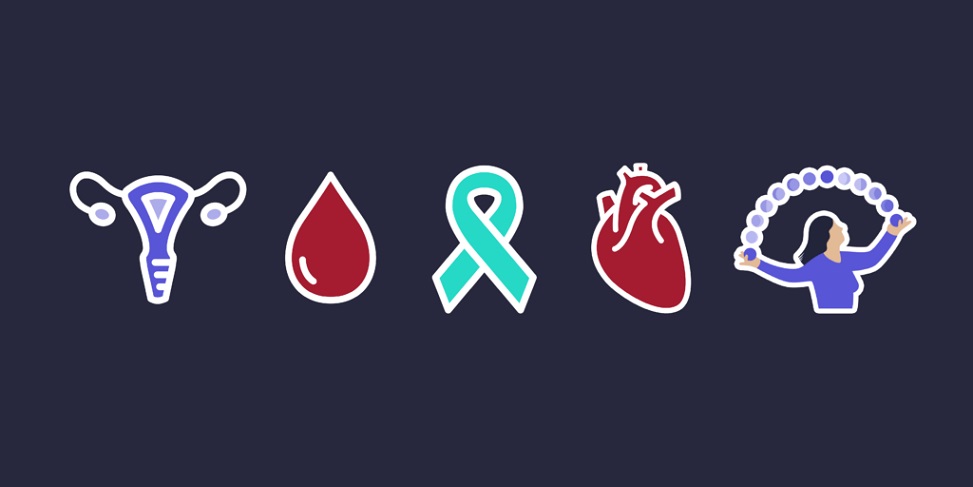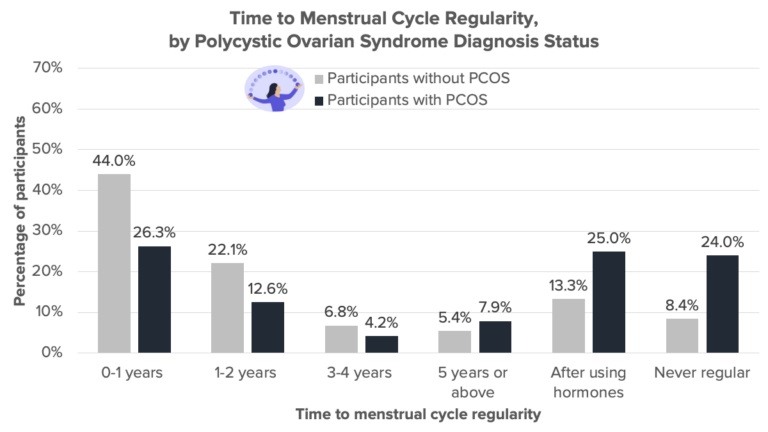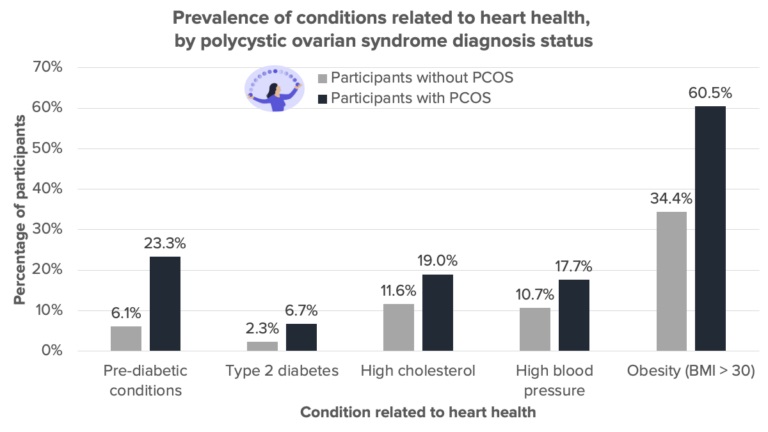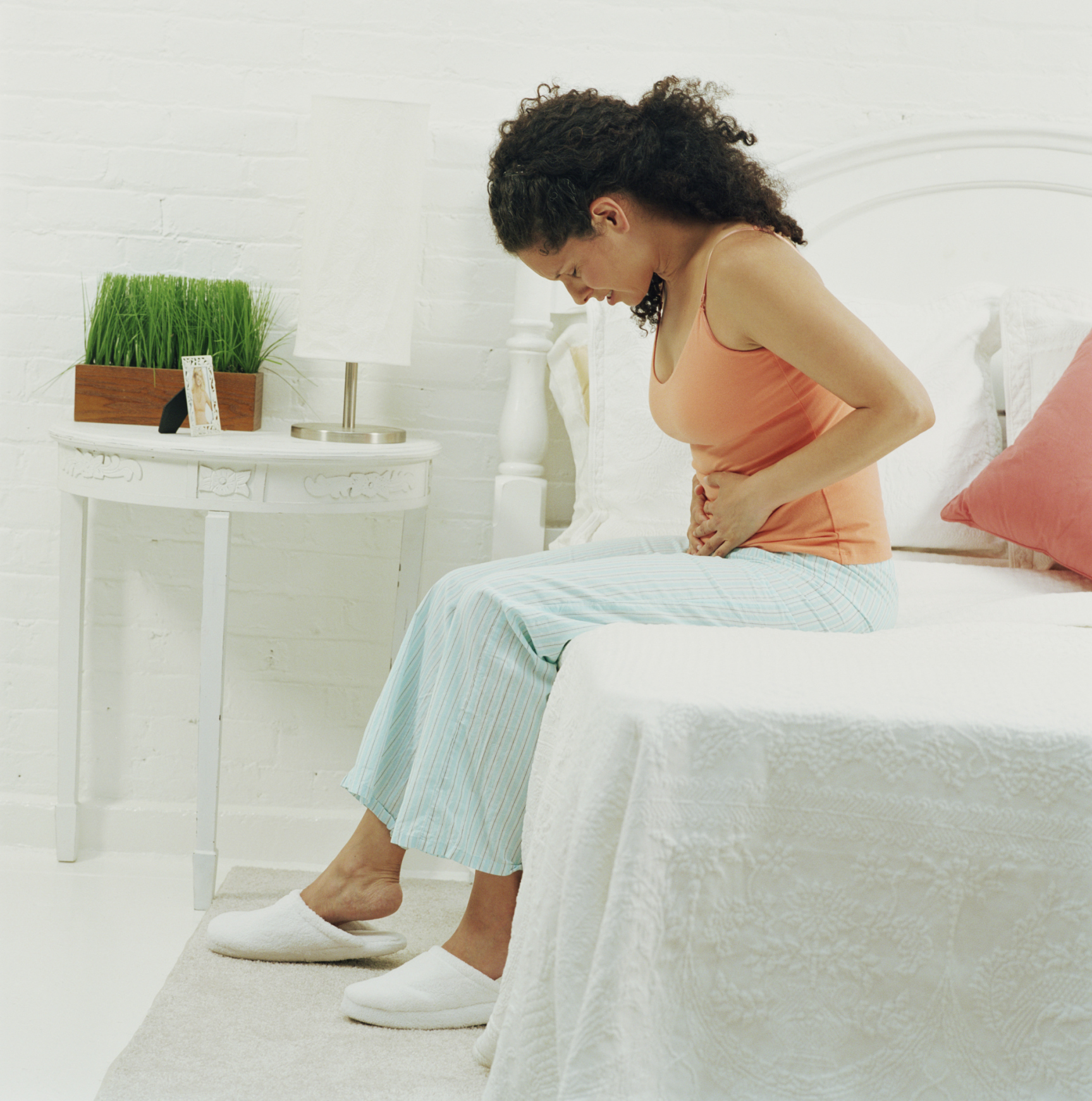Are you struggling with PCOS? Insights from the Apple Women’s Health Study
Apple surveyed nearly 40,000 women to understand how your period impacts your overall health
 Photo by:
Apple Women’s Health Study - Harvard T.H. Chan School of Public Health
Photo by:
Apple Women’s Health Study - Harvard T.H. Chan School of Public Health
Whether you’re a runner or not, periods are a window into a woman’s overall health. Unfortunately, the topic is notably under-researched. The Apple Women’s Health Study is a first-of-its-kind study led by the Harvard T.H. Chan School of Public Health, the National Institute of Environmental Health Sciences, and Apple to gain a deeper understanding of menstrual cycles and gynecologic conditions in the modern age, including how to better predict gynecologic diseases like infertility and PCOS, and how demographic and lifestyle factors impact these, using iPhone and Apple Watch.

According to the Journal of Obstetrics and Gynaecology Canada, approximately 1.4 million Canadian women may be afflicted with polycystic ovary syndrome (PCOS). Not only can this condition make maintaining a consistent training schedule nearly impossible, but it can also negatively impact your heart health and your overall health, and affect your ability to go about your daily life.
Survey data from the Apple Women’s Health Study helps researchers understand the relationship between persistent abnormal periods, PCOS, and heart health, and revealed that 12 per cent (3,600) of the 37,000 study participants reported a PCOS diagnosis. Here is what the researchers found:

- More than 70 per cent of participants without PCOS reported that their menstrual cycles became regular within four years of their first period. In comparison, only 43 per cent of participants with PCOS reported that their cycles become regular during the same time frame.
- Almost half, 49 per cent, of the participants that reported a diagnosis of PCOS never had regular menstrual cycles or achieved regularity only after using hormones. In comparison, only 22% of participants without a diagnosis of PCOS never had regular menstrual cycles or achieved regularity using hormones.
PCOS and heart health

Participants who reported a PCOS diagnosis had a higher prevalence of conditions that can negatively impact heart health. These participants were almost:
- Four times more likely to have pre-diabetic conditions.
- Three times more likely to have Type 2 diabetes.
- Two times more likely to have high blood pressure and high cholesterol.
- Prevalence of obesity was almost double for participants with PCOS than participants without PCOS.
- A majority (61 per cent) of participants with PCOS reported obesity
- Irregular heartbeat or arrhythmia was more common among participants with PCOS (5.6 per cent) than participants without PCOS (3.7 per cent).
“Despite the association between PCOS and heart-related conditions, historically, research studies about heart health have not included information about menstrual cycles,” says Dr. Shruthi Mahalingaiah, co-principal investigator for the study. “More broadly speaking, menstrual health is also significantly under-represented in the research space. Our study is filling a research gap by diving deeper into understanding how periods and menstrual cycles can be a window into overall health. The level of research being conducted by the Apple Women’s Health Study is important for having a better understanding of PCOS and its health impacts, including for people with PCOS and those that might have PCOS, but do not know.”
Diagnosis and management of PCOS

According to the study, tracking periods can lead to a PCOS diagnosis, which is critical in risk assessment, prevention of some unwanted effects of the disease and implementation of behavioral changes towards better health. Period tracking apps, like Apple’s Cycle Tracking app, will help you find patterns in your symptoms and may help your doctor make a diagnosis.
Sow how do you know when your period symptoms have crossed the line from normal to potentially problematic? The researchers outlined several abnormal symptoms to watch out for:
- Your period lasts more than 10 days.
- Your period flows so heavily that it impacts your daily routine.
- The time between your periods is less than 24 days or more than 38 days.
- You don’t get a period.
- You spot or bleed frequently in between periods.
As International Women’s Day approaches, the researchers behind the Apple Women’s Health study are planning to continue to learn more about women’s menstrual cycles and their impact on women’s health.

“Moving forward from this preliminary analysis, we hope to create a larger foundational data set on PCOS, with self-tracked variables and its connection with heart health, which can contribute to understanding the condition, developing treatments, and inspiring new areas of research across women’s health,” says Mahalingaiah. “Our hope is that by expanding the understanding of the public health burden of PCOS, we can create research models that can be applied to further scientific understanding of other health conditions and the burden of other diseases.”
To access the full report, click here.


